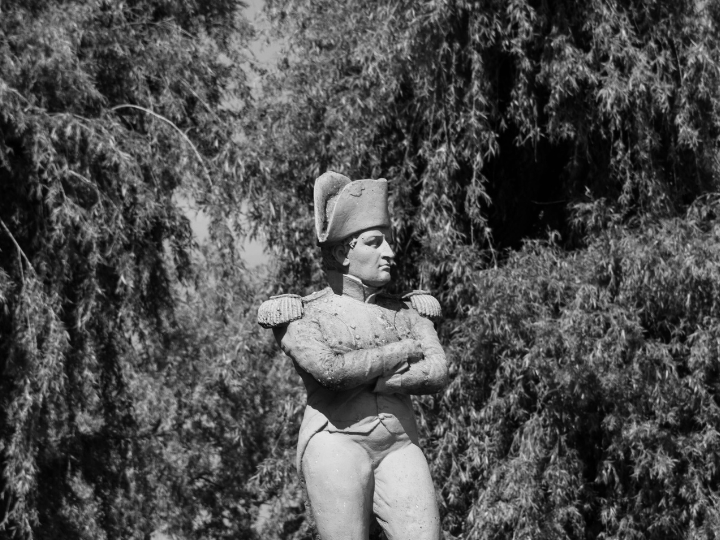by Stephan Richter
At a time when Europe’s economy is reeling and the EU’s strategic heft is rather deplorable, Olaf Scholz, the German Chancellor, and Emmanuel Macron, the French President, should be intensely focused on collaborating.
Why do the two men lock horns so fiercely?
The fact that both men are rather short in stature (at 1.70m and 1.73m, respectively) is more a matter of trivia.
Far more significant are two facts: First, both men are technocrats and, second, they trust their own intellectual power so much that they easily come across as arrogant.
Polished vs. pedantic
For his part, Emmanuel Macron is quite adept at injecting emotionality into his appearances. He does this quite deliberately in order to be able to soften his arrogance. On top of that, Macron is personally very fond of engaging in debates.
Olaf Scholz, on the other hand, finds it very difficult to display any emotion. He comes across with a level of monotony and pedantry that almost seems consciously intended to put the German nation asleep.
Like a human steamroller
If the German Chancellor is truly challenged by a questioner in debate, Scholz instinctively switches to reeling off his arguments in the vein of a human steamroller, which at times makes him appear a touch autistic.
Alternatively, Scholz quickly resorts to dismissiveness, often combined with personal disparagement. For example, when asked recently if he showed too little emotion in politics, he replied that he was “not a circus ringmaster.”
For Scholz, the buck stops … nowhere
All of these personality traits point to one overriding problem: To this day – and in clear contrast to Macron – Scholz has simply not shown himself capable of ever taking personal responsibility for any undesirable political development.
From mismanaging the disastrous and hyper-violent 2017 G20 summit in Hamburg to two major financial scandals (Cum Ex and Wirecard) that have his fingerprints all over them, Scholz has had his share of scandals.
Two men got lucky
What unites Scholz and Macron, though, is not only their enormous confidence in their own intelligence. The pathway in which they became French president and German chancellor, respectively, also provides them with an autobiographical bridge.
For Macron to become president, he basically had to crush France’s entire, long established party system. On that path, he faced a whole number of low-probability decision moments in his 2017 presidential election campaign. Astonishingly, they all turned out in his favor.
Rising to the top against incredible odds
The rise of Olaf Scholz was not quite as unlikely as Macron’s phoenix-like rise. And yet, his 2021 election campaign faced very long odds.
After all, his party only had the support of 15% of the voters for much of the campaign. Like Macron, Scholz is equipped with an apparently unshakable belief in himself.
However, the biggest factor in helping him making it to the top post was the nasty and very self-destructive infighting among the potential candidates for chancellor presented by the then still governing CDU/CSU.
A common base?
While Macron clearly ranks ahead of Scholz in terms of vision, the assumption was that Scholz was ahead of Macron with regard to government experience.
However, Macron benefits from the French presidential system, which gives a president wide latitude to shape the country’s political process. (This is a system of government that Olaf Scholz might also secretly like.)
A “progress coalition” in the Franco-German framework?
To give it a go with resuscitating the Franco-German motor, Macron even readily subscribed to the new Berlin theme of a “progress coalition” and saw it as a realistic option in the Franco-German framework.
He was assuming, of course, that the Germans would consider nuclear power “progressive”, since it is CO2 emissions-free…
Missed opportunity: Focusing on the other side of the historic Napoleon
From technological and social modernization, economic stimulus programs and a commitment to climate change, Scholz and Macron believed initially that they had plenty of common ground on the policy level.
Even historically, the theme was right there: All that both men needed to do to create a common and unifying impression was to bring out the other, i.e. non-military, side of the historic Napoleon.
Napoleon, the rabble rouser and conquistador, was not just, like Macron and Scholz, almost supernaturally convinced of himself and his leadership capabilities.
Napoleon’s legacy as an economic and civic reformer
What is often forgotten today is how critical Napoleon, as a civic reformer, was de facto for the modernization of the two nations’ administrative and economic structures.
The de-feudalization brought about by Napoleon and his administrators laid the foundations first for the economic upswing of the bourgeoisie and then for a level of prosperity that gradually spread to other strata of the population.
They never found the way
Unfortunately, Scholz and Macron never found a way to jointly shape the envisioned Franco-German coalition as an axis of modernization.
Quite the opposite. Instead of generating positive energy from their collaboration, they are now locking horns in almost any imaginable way. In that perverse duel, Germany’s Scholz is clearly the more intransigent one.
He underscores almost every day that he stays true to his roots: The former mayor of Hamburg is a local politician at heart.
*Director of the Global Ideas Center, a global network of authors and analysts, and Editor-in-Chief of The Globalist
**first published in: Theglobalist.com




 By: N. Peter Kramer
By: N. Peter Kramer

